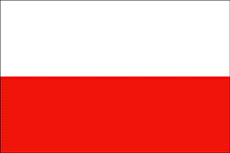Guide to living and working in Poland
 We’re happy to announce our new country guide to living and working in Poland! Due to the rapid economic development, more and more people are going to live in Poland today – ranging from expatriate professionals on assignment from large companies, workers from other Eastern European countries to students studying under Erasmus programmes (many Polish universities have set up courses in English). A common complaint from foreigners in Poland is that the country has still not quite managed to shrug off a tradition of red-tape and bureaucracy, so getting things done can be hard work. We hope that our new Poland guide helps you overcome the obstacles that go along with moving to Poland.
We’re happy to announce our new country guide to living and working in Poland! Due to the rapid economic development, more and more people are going to live in Poland today – ranging from expatriate professionals on assignment from large companies, workers from other Eastern European countries to students studying under Erasmus programmes (many Polish universities have set up courses in English). A common complaint from foreigners in Poland is that the country has still not quite managed to shrug off a tradition of red-tape and bureaucracy, so getting things done can be hard work. We hope that our new Poland guide helps you overcome the obstacles that go along with moving to Poland.
Poland quit communism in 1989 and has since joined NATO, the OECD and became a member of the EU in 2004. An educated workforce, a good level of political stability and attractive costs for manufacturing all contributed to help the country’s economy achieve one the highest growth rates among the larger EU states in recent years.
Although there remain some real challenges, Poland has modernized rapidly and unemployment – which drove much emigration – has decreased. An investment-friendly environment with low taxes, relatively low costs and incentives for inward investment combined with its central geographic position have all encouraged many companies to setup operations in Poland. These range from manufacturing to outsourced IT development, and drive a new wave of immigrants coming to Poland.



